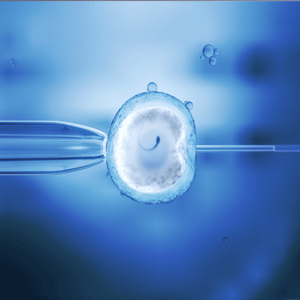
Women who get pregnant through in vitro fertilisation (IVF) or intracytoplasmic sperm injection (ICSI) have a higher risk of stillbirth, scientists have found, although the overall risk is still low.
Researchers from Aarhus University Hospital in Denmark studied 20,000 single pregnancies and found a fourfold increased risk of stillbirths for women who had IVF or ICSI compared with women who conceived naturally.
"The results from our study emphasize the need for continuous follow-up of the outcome of fertility treatments so that the information given to infertile couples seeking treatment can be differentiated to their individual circumstances," Kirsten Wisborg, who led the study, wrote in the Human Reproduction journal.
She added, however, that the risk of stillbirth was still very low for IVF and ICSI pregnancies. The rate of stillbirth after IVF/ICSI was 16.2 per thousand, compared to 3.7 per thousand in fertile couples who conceived without medical help.
Unsure of cause
The researchers said it was not yet clear whether the increased risk was due to the fertility treatment itself or because of unknown factors specific to couples who IVF or ICSI.
IVF is the fertilisation of an egg by sperm in a laboratory dish. In ICSI, an egg is fertilised by injecting a single sperm into it.
Alison McTavish, Secretary of the British Fertility Society, said it was important to emphasize "that this study shows the risk of stillbirth after assisted fertility treatment is still extremely low and the majority of people who have a baby following IVF/ICSI treatment have a healthy baby."
Doctors previously thought the greater risk of bad outcomes like stillbirths in assisted reproduction might be something to do with the underlying infertility of couples who have it.
Infertility not linked to stillbirth
But Wisborg's study found that fertile couples who conceived within a year of trying, and so-called "sub-fertile" couples who took longer to conceive, had a similar risk to each other.
"This may indicate that the increased risk of stillbirth is not explained by infertility and may be due to other, as yet unexplained factors, such as the technology involved in IVF and ICSI or some physiological difference in the couples that require (it)," Wisborg wrote.
Peter Braude, head of women's health at King's College London, Guy's, King's and St Thomas' Hospitals, said the study flagged up the importance of examining research into the outcome and safety of IVF and ICSI treatments.
"The finding that infertility per se did not account for the increased stillbirth rate is novel and interesting," he said in an emailed comment on the study. But he said the question of whether an IVF and ICSI carried a substantial risk of stillbirth needed to be examined further in studies, with more women.
"(The sample in the study) represents only 1/14 of the babies born in the UK in just one year. A larger sample does need to be studied," he said.
Read more:
Coeliac disease might explain fertility problems
Dagga might affect male fertility
New test spots most viable embryos
Image: IVF of an egg cell from iStock




 Publications
Publications
 Partners
Partners










